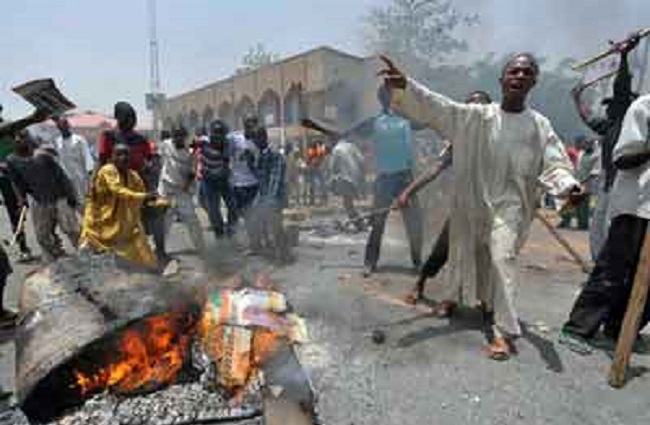Preventing election violence in West Africa

During 2018, elections will be held in 23 African states – at local, regional or national level. Democratic elections have become more common on the African continent. At the same time, an increase in electoral violence is reported, writes Emma Skeppström.
According to a study by Stephanie M. Burchard, more than half of Africa’s states have experienced some form of election violence since the end of the Cold War. According to a recently published book by Mimmi Söderberg Kovacs and Jesper Bjarnesen, a reason for this may be that multi-party systems open up greater competition among the parties and that election results have become increasingly important to gain or retain power. Thus, the results are also more contested.
Electoral violence does not necessarily mean widespread violence, but can also be about individual events, harassment or methods of scaring people to act in a particular way – as many Western countries have experienced in recent years. Common to these methods, however, is that they in one way or another aim to influence the election process or election results. Elective violence is therefore a serious threat to democracy.
ECOWAS, the regional cooperation organization in West Africa, has the task of working in its Member States before and during elections. This includes election observation. Since there are several examples of electoral violence within the Member States, ECOWAS has decided to try to work with these issues.
Within the framework of FBA’s mission in Sweden’s regional strategy for sub-Saharan Africa, Folke Bernadotte Academy (FBA) and the Economic Community of West African States (ECOWAS) cooperate on how dialogue and mediation can be used to prevent election-related violence. At FBA there are both expertise in dialogue and mediation and election. Here, FBA has the opportunity to combine two of its areas of expertise to support a partner.
The cooperation is long-term but focuses on a number of workshops in Nigeria, Mali and Guinea-Bissau this year. The intention is to increase both ECOWAS and Member States’ capacity to prevent election-related violence. At the workshops, players from ministries and authorities, political parties and civil society participate. While national or regional players contribute country-specific knowledge, FBA provides knowledge of dialogue and mediation as well as electoral violence. Technical advice, for example, how different actors can act as mediators, alternate with opportunities to discuss challenges in the country in question and possible ways forward.
The workshops have also given different actors, who do not usually work together, the opportunity to meet and create networks. Something that they can build on after our days together. For ECOWAS, increasing opportunities for cooperation with local actors, while increasing the competence of the respective country offices. ECOWAS is also better equipped for the election observation efforts planned.
The FBA’s contribution is, of course, only a small piece of puzzle when it comes to preventing election-related violence on the African continent. The main responsibility lies with the parties involved in the electoral process and who use the election violence in any form. However, we will do our best to create room for dialogue on those issues that risk creating tension and thus contribute constructively to current election processes. Our expectation is that cooperation with ECOWAS will be strengthened over the next few years, and in the future we can contribute to greater efforts in this area.
If you want to read more about election violence in African elections, the book Violence in African Elections: Between Democracy and Big Man Politics, recommended by Mimmi Söderberg Kovacs, FBA Program Director for Research and Development, was also the editor of Stephanie Burchard’s book Electoral Violence in Sub -Sharan Africa: Causes and Consequences.
Emma Skeppström is project manager for FBA’s work on Sweden’s strategy for regional development cooperation with sub-Saharan Africa. She has previously worked on FBA’s security sector reform programs. She has also worked as security policy analyst with focus on the Horn of Africa, especially in Somalia.
This article was first published (in Swedish) at the fba-bloggen.se

